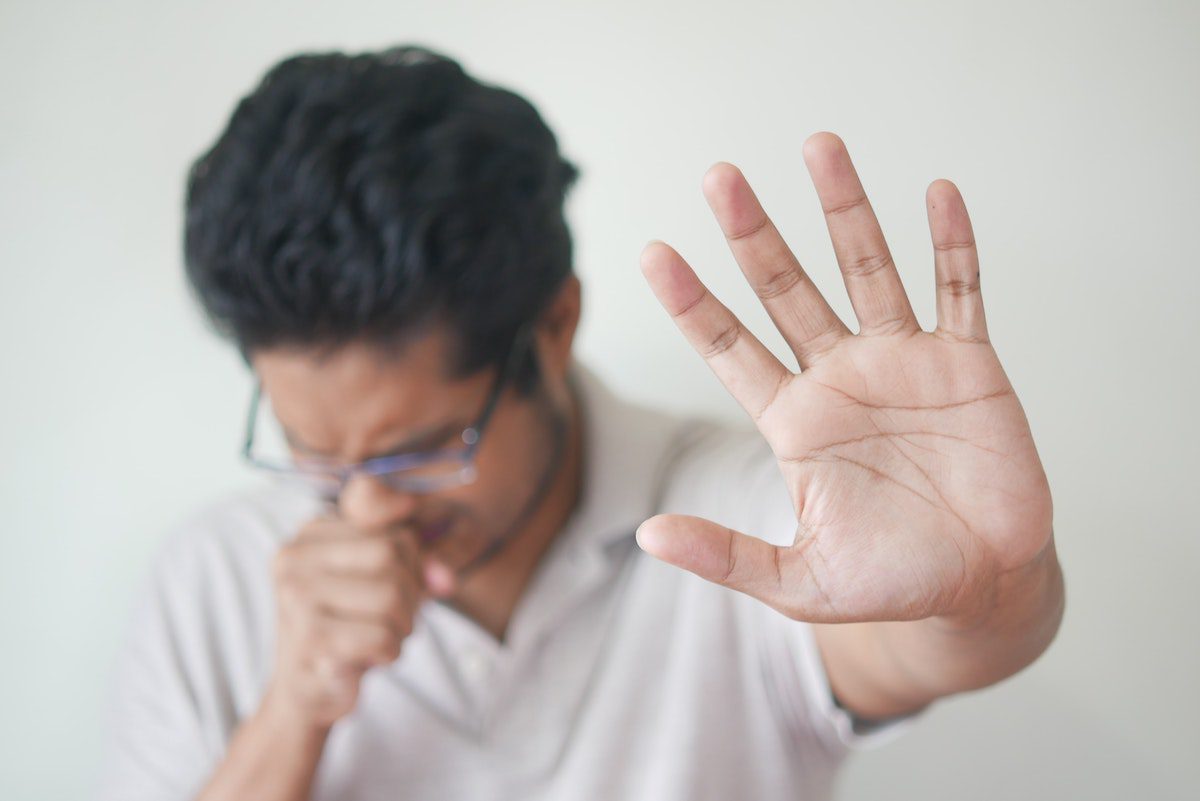Tips For Managing Life with Herpes

Contracting herpes can sometimes feel like an isolating experience that will negatively impact your life forever. While it’s true that there’s currently no way to eliminate the virus from your body, medical and pharmaceutical science have made it easier that ever to minimize the damage that herpes can cause to your body and your life.
Life with herpes will probably always mean a little extra precaution, but educating yourself about the virus, how genital herpes in men and women works, and finding out does Valtrex™ work and how, will help to make the journey that much smoother.
What is Herpes?
Let’s start with what exactly herpes is. Herpes is how we commonly refer to the herpes simplex virus, which actually has are two types.
Herpes simplex virus-1 (HSV-1) is the most common form of the herpes virus, affecting about 67% of the world’s population under age 50. Outbreaks typically affect the lip area in the form of cold sores, but it is possible to spread HSV-1 through genital contact and cause HSV-1 related genital outbreaks.
Herpes simplex virus-2 (HSV-2) is the form of the virus commonly associated with genital herpes in men and women. Like HSV-1, it is common. In fact, it is the most common STI in the world. Study data shows that over 491 million people have HSV-2. That’s 11% of people aged 15-49. In America, the rate is even higher, with about 1 in 6 people infected. So even though contracting and managing herpes can feel like an isolating experience, you are far from alone.
Once you contract the virus, it sets up shop in your body, needing about 2-3 weeks before it has dug in and is able to begin outbreaks. Primary outbreaks usually occur anywhere from 2-3 weeks after infection. Initial outbreaks can be extremely painful sores. Recurrent outbreaks tend to be less dramatic as you and your body begin to get more used to them.
No matter how painful or visible an outbreak is, it is the peak contagion time for the virus, which is why it’s the most critical time to take care of yourself and your health, to lower chances of getting herpes from an infected partner.
Up to 90 out of 100 people can even carry the virus without suffering from an obvious outbreak, which is why it’s important to stay informed about your health and get tested for STIs regularly.
How Does Herpes Spread?
Your chances of getting herpes from an infected partner can be lowered with proper precautions, but the truth is, it’s almost impossible to lower those chances to zero.
HSV-2, or genital herpes, is transmitted through skin to skin contact, especially sexual contact. While the virus can spread through the use of shared sex toys, it can’t survive for long outside of skin, which makes the chances of being infected from bedsheets or toilet seats very low.’
Once the virus is spread through contact, it will infect a cluster of nerve cells at the base of the spine. From there, it can move along nerve layers to the skin, causing outbreaks.
How to Prevent the Spread of Herpes
As we mentioned, the chances of spreading the virus are at their highest during an outbreak, which is why it’s advisable to avoid all sexual contact during that time. Once outward signs of genital herpes in men and women have manifested, it’s good to take a pause on the sex life and focus on health.
Your chances of getting herpes from an infected partner are lower outside of outbreak periods, but the chance is still higher than zero. Are you wondering “Do condoms prevent herpes?” The answer is, that like with many STIs, condoms can greatly lower the chance of transmission during periods without outbreak symptoms, but they are still not a 100% guarantee.
Symptoms and Signs of Herpes

The symptoms of herpes typically occur for the first time about 2-3 weeks after the initial infection. In HSV-2, genital herpes, the beginning of an outbreak could be signaled by a tingling sensation. The skin in the genital area can develop small blisters, becoming painful and inflamed. The blisters often appear in little clusters which can tear open and weep. Urinating can be painful for women with herpes, especially during their initial outbreak.
The very first outbreak can often include more severe symptoms outside of the genital trauma, more like an influenza viral infection, including headache, fever, muscle pain, exhaustion, and swollen lymph nodes, especially in the groin area. Subsequent outbreaks are typically milder than the first one, and will have less of the non-skin related symptoms.
How to Treat Herpes
No matter whether you’re dealing with herpes for the first time, or trying to find a stable health protocol for recurrent herpes outbreaks, it’s important to have reliable treatment for genital herpes in men and women on hand.
When suffering from an outbreak, you may want to try antiviral medications to help your body fight the virus. Not only does Valtrex™ work to fight the outbreak, there are other antiviral options. Antivirals such as aciclovir, famciclovir, and valacyclovir can reduce the severity of symptoms and shorten the length of an outbreak.
It’s also advisable in some bases to use an antiviral medication for preventative treatment, for people who suffer from very frequent or severe outbreaks. This would mean a constant regimen of a lower dose of antivirals during non-outbreak periods.
There are also new products that can help minimize discomfort during outbreaks, and at-home methods like sitting in warm, shallow water (a sitz bath) can help women with genital herpes to ease their pain.
Oral Medication for Herpes
A very highly recommended treatment for HSV-1, HSV-2, and shingles (also known as herpes zoster), valacyclovir (Valtrex™ generic names) is a great option for people who want to work toward a normal life with herpes. Using valacyclovir correctly can reduce risk of transmission by 48%, and help your body to recover more quickly from the viral outbreak.
Commonly, two daily doses of valacyclovir 1g will be prescribed for adults with first time outbreaks, for a 10 day regimen. However, dosage will depend on your age, weight, general health, and symptoms. Our medical professionals will guide you toward a course of action that will quickly and gently get you back on your feet.
Your valacyclovir dosage will also depend on whether you’re dealing with your initial infection, recurrent outbreaks, or looking to begin a preventative regimen. You can find out today what kind of valacyclovir regimen is right for you.
How Does Valacyclovir (Generic for Valtrex™) Work?
If you’re wondering does valtrex™ work instantly, the answer is unfortunately, no. Valacyclovir (generic for Valtrex™) works on the viral level, by interfering with the viral replication mechanism. This will slow the spread of the virus to healthy cells, and stop the virus from multiplying.
While fighting the virus, valacyclovir will also start treating herpes symptoms as soon as it’s in your system, but it can sometimes take days to notice tangible improvement. This does not mean it’s not working for you! The herpes virus is tenacious, but the valacyclovir will work eventually.
Primary outbreaks are simply very strong for most people as their body deals with an entirely new virus setting up shop in their ganglia. Sometimes, it can take 10 days for herpes blisters from a primary outbreak to heal, even with the valacyclovir 1g twice a day regimen.
For recurrent outbreaks, valacyclovir can even more quickly help with relief, sometimes in two to three days. Whether for a primary or a recurrent outbreak, it’s important to take valacyclovir early in the viral process to help speed up healing time.
Can Valacyclovir Prevent Herpes?
Valacyclovir can also be taken daily as a form of suppressive therapy, meaning that it could reduce the chances of getting herpes from infected partner or family member, as well as restricting outbreaks.
Do condoms prevent herpes? As mentioned before, there is not an absolutely perfect way to prevent transmission, other than abstinence, which can be hard on people psychologically. A better option could be communicating our status to your partners, understanding the risks, and understanding just how common HSV-2 is chances are, your partner could be wanting to have the same conversation with you! A healthy, happy sex life is in reach for people with herpes.
Topical Medication for Herpes

Valacyclovir is an incredible drug, and it’s gold-standard for good reason, it’s safe, effective, and proven. It’s effective on the virus from the inside out.
However, just because a solution is great, doesn’t mean it can’t be optimized. That’s why when 7 Cells decided to provide healing for people suffering from herpes, we wanted something that could work from the outside in– minimizing the most painful aspects of a herpes outbreak, while also continuing to fight the virus.
The result was V-Cream, a topical made with Valacyclovir, which can help an outbreak heal more quickly, while also providing almost instant action due to blood proteases that breakdown valacyclovir to make it active on the breakout itself.
Life With Herpes is Possible

Genital herpes in men and women is not a death sentence for your sex life. With a few extra, simple precautions, you could be enjoying life without fear. And by utilizing a full-stack prevention and treatment plan, outbreaks can be transformed from traumatic experiences to minor inconveniences.
At Seven Cells, we are here to put your health in your hands, where it belongs. Whether you want to incorporate valacyclovir tablets into your health plan, V-cream, or possibly both, our empathetic medical professionals will help you optimize a protocol with compounded-for-you medication, delivered to your door quickly and discreetly.
Want to learn more?
Sign up for our newsletter for everything wellness.

